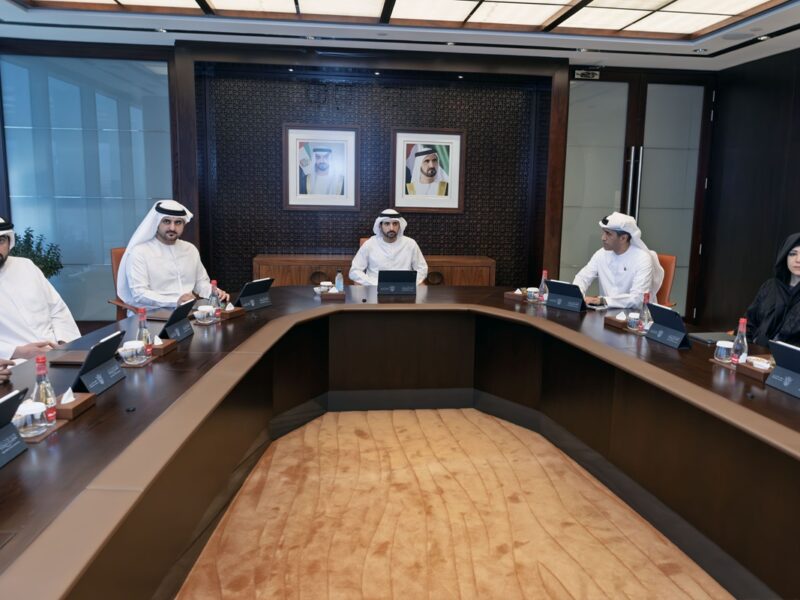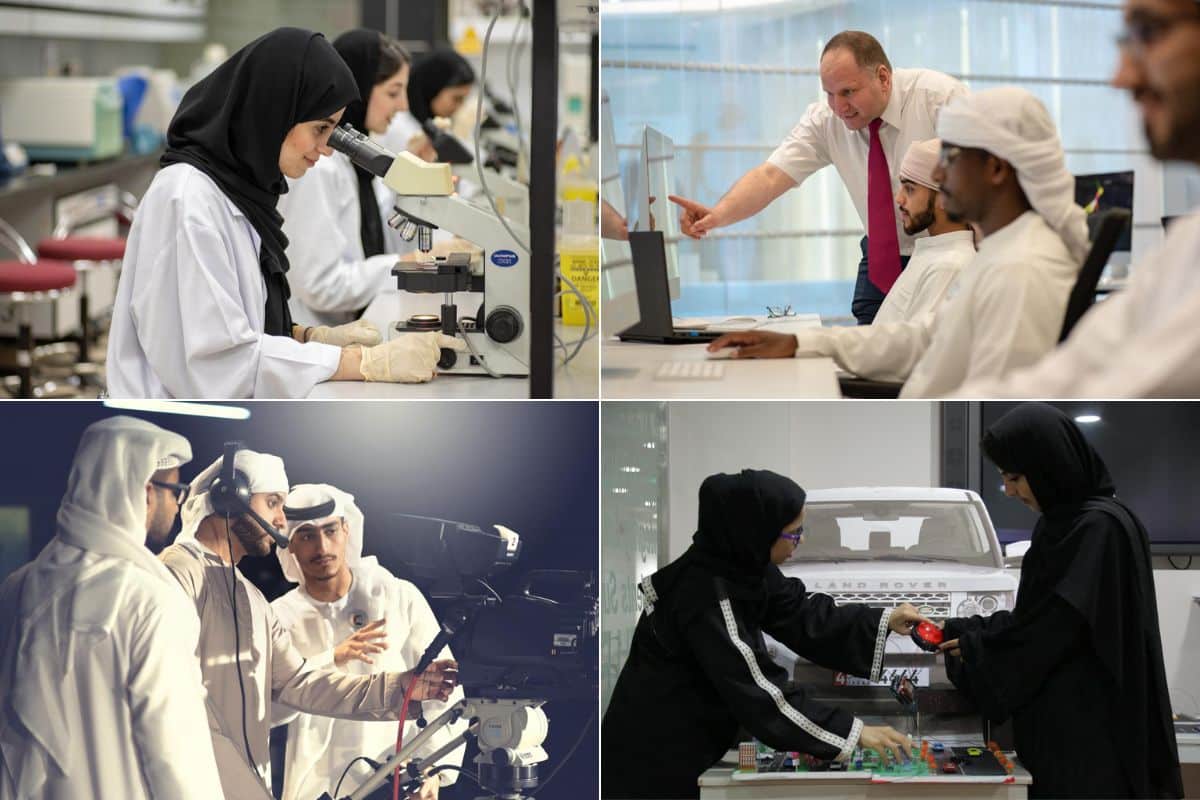The Higher Colleges of Technology (HCT) in the UAE recently introduced an apprenticeship program to combine classroom learning with practical work experience.
This represents a shift towards integrating more work-based training opportunities alongside academic study, helping students gain real-world job skills through apprenticeships conducted with industry partners.
Moreover, the goal is to overhaul how graduates are prepared for employment in the UAE job market. In an exclusive interview with Arabian Business, Dr. Luc Verburgh, the Chief Academic Officer at HCT, revealed how this apprenticeship programme will support the UAE’s vision of increasing Emirati representation in the workforce and transitioning towards a diversified, knowledge-based economy.
New UAE apprenticeship programme makes Emiratis ‘job-ready quicker’
“Apprenticeships serve as a crucial bridge between education and employment, offering Emirati jobseekers unparalleled access to hands-on, practical experience that is directly aligned with the needs of the private sector,” Dr. Verburgh said adding this “experiential learning approach” apprenticeships in the UAE not only make people more likely to find jobs, but also help them better understand the constantly changing work environment in the UAE’s diverse economy.
“By receiving hands-on, career-focused training through the apprenticeships, the students are job-ready quicker, develop strong industry connections in their fields of study, and are more attractive as new hires to employers,” he said.
Meanwhile, for the national economy, these apprenticeships are a “strategic investment” to develop an individual’s skills and abilities as they help create a workforce that can drive market changes globally.
“By focusing on sectors critical to the UAE’s economic diversification plans, such as technology, green energy, and finance, apprenticeships contribute to creating a sustainable, knowledge-based economy, driving innovation and competitiveness on a global scale,” Dr. Verburgh said.
Over 4,000 students complete apprenticeships in the first two semesters

Launched in 2021, HCT’s apprenticeship program runs in partnership with the UAE Ministry of Human Resources and Emiratisation (MoHRE). It will allow HCT students to combine on-campus learning with workplace training.
So far, over 4,000 students have completed apprenticeships in the first two semesters, and HCT aims to continue to strengthen links with employers to bridge the gap between education and employment.
Their goal is to achieve a graduate employment rate of over 90 percent by enhancing practical and on-the-job training for students.
However, the cost of implementing such apprenticeship programs “involves a collaborative effort between educational institutions, government regulators, and Industry partners. These programs represent a significant investment in the future of the UAE’s workforce. The return on this investment is seen in the accelerated integration of skilled nationals into the workforce, contributing to the country’s economic resilience and sustainability,” Dr. Verburgh said.
HCT recently inked 11 agreements to create more than 4,000 new employment opportunities and an additional 4,000 training prospects for students. These numbers are likely to increase over time, he said.
“[This] is just the beginning. As the program gains momentum and with the expansion of partnerships between educational institutions, government, and the private sector, these numbers are expected to rise. This growth will not only provide more Emirati youth with invaluable work experience but also support the UAE’s broader economic goals by ensuring a steady pipeline of skilled workers ready to contribute to key industries,” he added.
In line with the program’s objectives, focus has been placed on developing a broad set of skills essential for employability in the private sector as well.
“The program focuses on developing a broad set of skills, including technical expertise specific to various industries, critical thinking, problem-solving, adaptability and soft skills, such as communication, time management, teamwork, cultural awareness and interpersonal relations,” he said.
New apprenticeship programme to help UAE economic diversification efforts
Dr. Verburgh also explained that by giving these students real work experience, this program helps ensure Emiratis are not just hireable but also immediately contributing members of their teams from day one.
Trainees gain skills in areas like managing projects, working collaboratively, and leading others. These abilities are key for fostering innovation and high performance in companies, and the program covers competencies that are truly valuable to employers.
As a result, companies actively seek out graduates of this initiative to join their workforces.
The initiative has already secured commitments “for thousands of job and training opportunities” for Emiratis.
“These opportunities are spread across a variety of sectors, offering a wide range of experiences that cater to different interests and skill sets. This diversity is crucial in ensuring that the program supports the UAE’s economic goals while providing meaningful career paths for participants,” added Dr. Verburgh.
In assessing the long-term impact of Emiratisation initiatives, career services and graduate tracking systems play a key role, he said.
“By collecting data on employment rates, career progression, and the satisfaction of both graduates and employers, stakeholders can gain insights into the effectiveness of the program. This ongoing evaluation allows for adjustments and improvements, ensuring that the apprenticeship program continues to meet the evolving needs of the UAE’s economy and its workforce.”
Ultimately, as the program continues to evolve, its impact on socio-economic development and national prosperity remains pivotal.
“By preparing a new generation of Emiratis for careers in innovative and emerging sectors, the initiatives support the country’s strategic move away from oil dependence. This not only strengthens the UAE’s position as a global economic leader but also ensures its resilience against future challenges,” he concluded.








